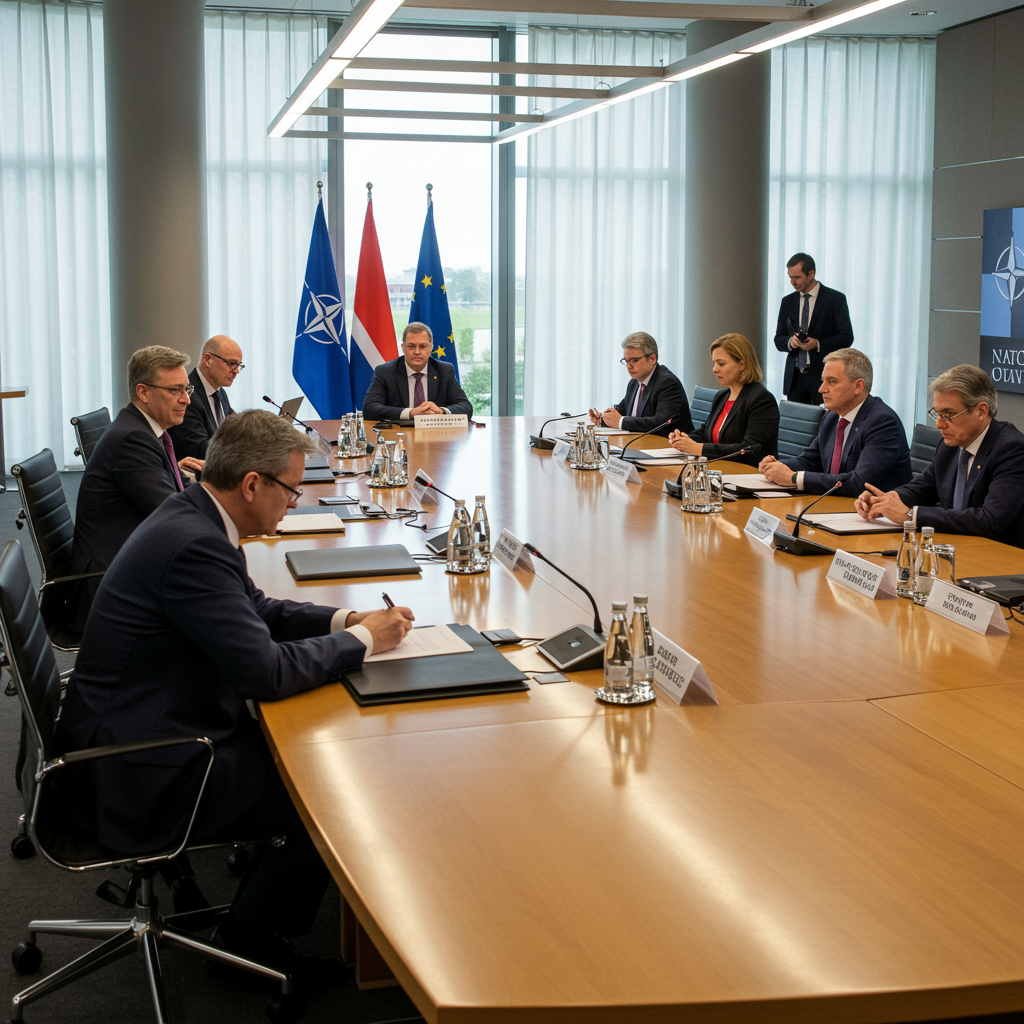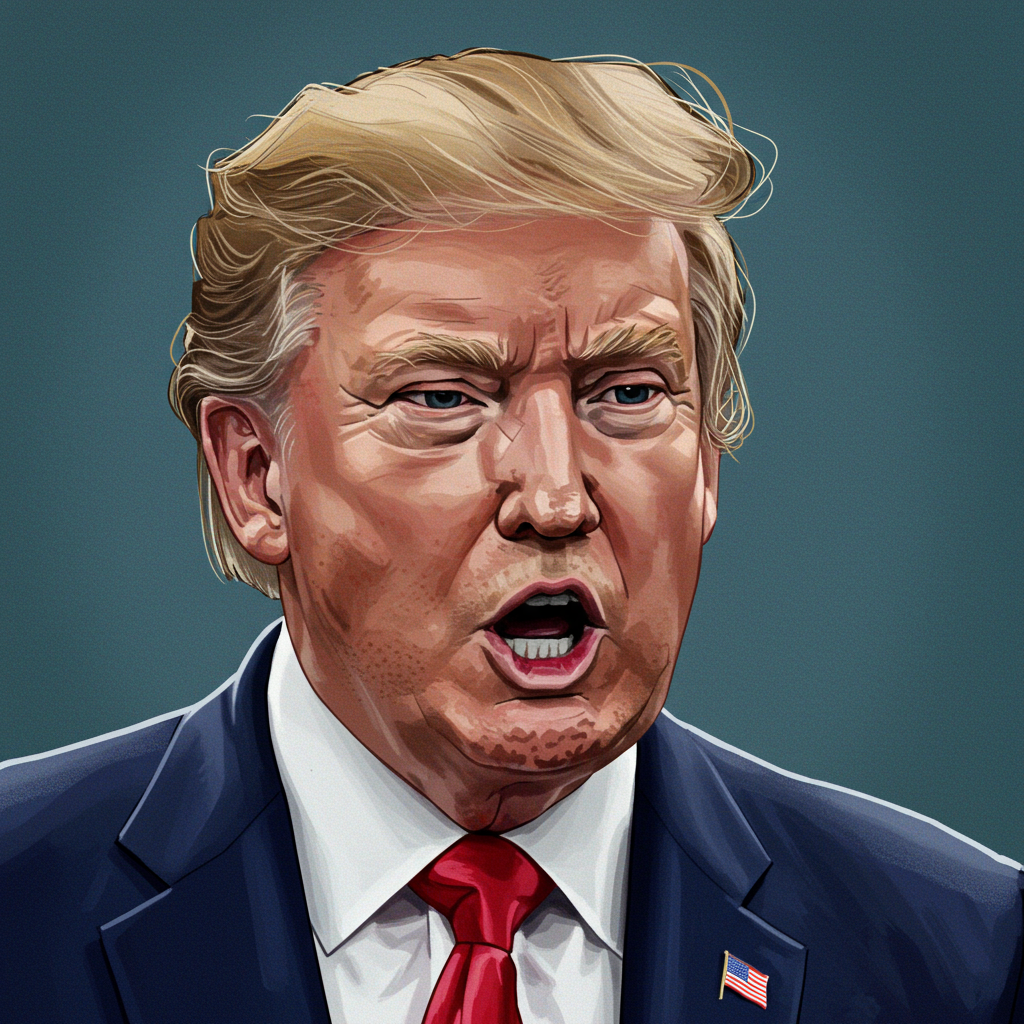World leaders have convened in The Hague, Netherlands, for a pivotal two-day NATO summit. The gathering is poised to be a historic moment for the alliance, aiming to solidify a new, ambitious defense spending commitment, though it also navigates significant internal divisions and evolving global challenges.
Pushing for a New Defense Spending Target
A central focus of the summit is the anticipated endorsement of a new defense spending target: committing allies to allocate 5% of their Gross Domestic Product (GDP) to security. This ambitious goal seeks to significantly bolster NATO’s capacity to implement its defense plans amidst what Secretary-General Mark Rutte described as “much more dangerous times” with potential “enemies, adversaries who might want to attack us.” The increase is deemed necessary to defend the alliance’s “beautiful way of life and systems and our values.”
Several nations, including Britain, France, Germany, and the host country, the Netherlands, publicly supported the 5% target ahead of the summit. Countries closer to the borders with Ukraine, Russia, and Belarus had previously pledged similar robust spending levels. U.S. Ambassador to NATO Matthew Whitaker hailed the moment as “historic,” potentially leading to a “renaissance of our defense industries.”
However, the target faces notable resistance. Spain has reportedly deemed the 5% goal “unreasonable,” stating it cannot meet it. Slovakia indicated it agrees in principle but reserves the right to decide its own timeline towards the new 2035 deadline. Critically, former and potentially future U.S. President Donald Trump, attending his first NATO summit since his previous term, has historically questioned the U.S. burden, suggesting other nations should contribute more significantly.
Geopolitical Shifts Overshadowing the Agenda
While the defense spending pledge was initially anticipated to be a highlight, particularly showcasing U.S. success in pushing allies on burden-sharing, the summit’s focus has been partly complicated and overshadowed by recent U.S. actions outside the immediate NATO agenda.
Trump’s decisions regarding Iran, including strikes on nuclear enrichment facilities and a sudden announcement of an Israel-Iran “complete and total ceasefire,” have unexpectedly taken center stage. This shift in attention and resources has had tangible consequences, notably for Ukraine.
Ukraine’s Position at The Hague Summit
The conflict in Ukraine, now in its fourth year, remains a critical issue, despite past summits having been almost entirely dominated by it. This summit, however, marks a significant shift compared to the previous year’s gathering in Washington, where Ukraine’s war and its “irreversible path” to NATO membership were paramount.
Ukrainian President Volodymyr Zelenskyy is present in The Hague but was notably absent from a main leaders’ meeting specifically focused on the military spending agreement. This has been interpreted by some as a “telling sign” of Ukraine’s potentially diminished immediate status at this particular summit, with its bid for NATO membership characterized by analysts as having been “put in deep freeze by Trump.”
During his first official engagement, a meeting with Dutch caretaker Prime Minister Dick Schoof, neither leader explicitly mentioned NATO membership. Instead, they spoke of Ukraine’s place in the “Euro-Atlantic family” and future within the “EU family.” Prime Minister Schoof did announce a new package of Dutch support, including 100 radar systems for drone detection and plans for Dutch production of drones based on Ukrainian specifications, demonstrating continued bilateral backing.
Enduring European Commitment to Ukraine
Despite the complex dynamics and shifts in attention at the summit, European leaders continue to voice strong support for Ukraine. Ahead of the gathering, French President Emmanuel Macron and German Chancellor Friedrich Merz published a joint opinion piece, expressing support for U.S. peace efforts aimed at preserving Ukraine’s sovereignty and European security.
They conveyed an “unshakeable determination” against Russia for as long as the current situation persists, emphasizing that the stakes are critical for European stability for decades to come. Their shared objective is to ensure Ukraine emerges from the conflict “prosperous, robust and secure, and will never live again under the fear of Russian aggression.”
The Hague summit convenes at a critical juncture, grappling with the challenge of uniting allies behind an ambitious new defense posture while navigating complex geopolitical events that are simultaneously testing alliance unity and influencing the trajectory of international support for Ukraine.



